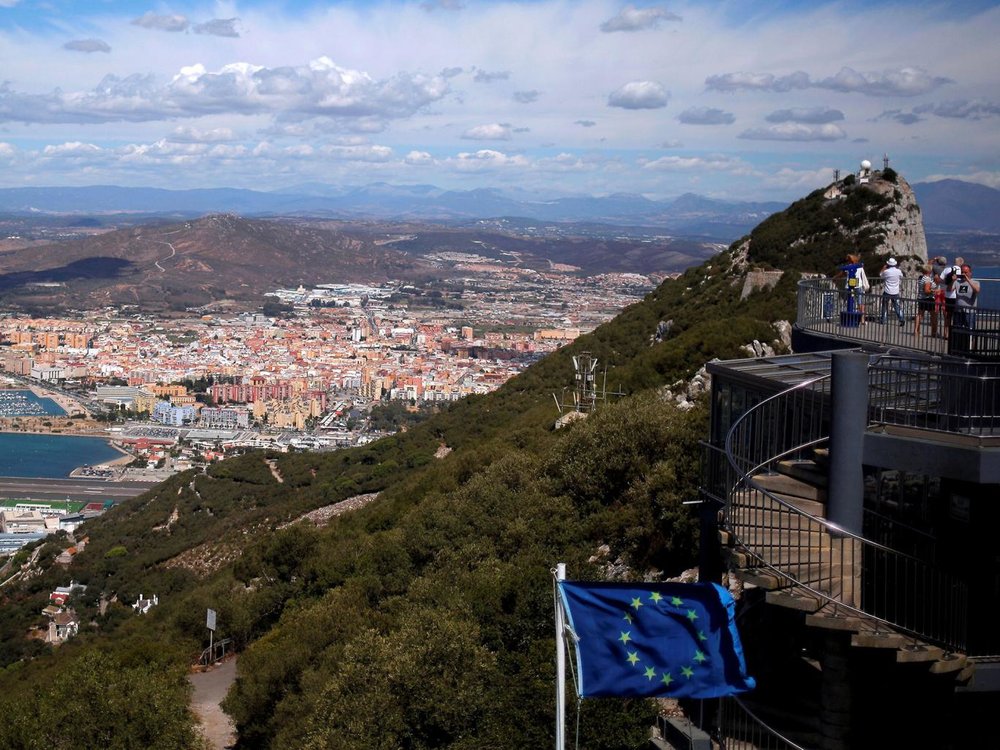Battle with Spain over Gibraltar shows many still live in the great shadow of British empire

In the case of Gibraltar, that could be very heavy indeed. OK, the proposed Spanish veto on a Brexit deal if they don’t get concessions on Gibraltar could be a grand bluff, but no one should be in any doubt about how much this outcrop of British imperialism is resented by the heirs of Spanish imperialism.
The row about Gibraltar and Spain’s opportunistic grab for more power over the Rock reminds us of one very important thing – that there is still such a thing as the British Empire and the UK should honor its obligations to these territories – political, moral and military. Now the Kingdom of Spain is soon to be the fourth largest EU economy and a significant power, with the backing of the entire bloc behind her. The choice, bluntly, may be between a good deal for the UK and Gibraltar but, say, with joint sovereignty with Spain – or a crash-out-hard, hostile Brexit with the added punishment of a blockade of Gibraltar. That means closing the frontier between Gibraltar and Spain, refusing permission for flights over Spanish airspace to Gibraltar and European sanctions on financial and tax avoidance activities. Don’t rule it out.
Maybe not so dramatic a turn of events will take place by 2019, but some of the hard choices between the welfare of 64 million UK British and 30,000 UK Gibraltarians clash. We shouldn’t pretend otherwise.
So if we’re serious about looking after Gibraltar then we should know there is a price that will need to be paid. We can make the very valid point that Spain indefensibly retains two pockets of rightly Moroccan territory in North Africa – Ceuta and Melilla across the way from Gibraltar, the last European colonies in Africa. But this won’t convince Spain to forget about the Treaty of Utrecht, 1713, whence British Gibraltar arose.
The UK will also need to be mindful of its other associated territories that, unlike Gibraltar, aren’t in the EU, but may be affected by Brexit. These include the crown dependencies of the Isle of Man, Guernsey and Jersey, plus the remaining possessions from Bermuda to the Falklands to the Pitcairn Islands. Most are too small or poor to be independent, they wish to stay British, and the UK has an historical obligation to protect their welfare. In the case of the Falklands that was rightly absolute. In other places at other times Britain didn’t always behave so honorably, including the interests of Caribbean sugar and banana producers after Britain joined the Common Market in 1973.
It is not always easy. On democratizing Hong Kong, Chris Patten did what he could, but was always going to have to bow to the vast power of China. Other decolonization efforts have ended in rebellion or partition, civil war and ethnic cleansing. Today Cyprus is a member of the EU but part-occupied by Turkey, closely linked to Greece and still with UK sovereign military bases, a complex product of a colonial past. Once, by the way, British ministers said that they could “never” grant independence to the island, as they do now about Gibraltar and Spain’s claims. There is also some irony in the prime minister of a former British crown colony, Malta, telling the British how the Brexit talks will proceed, in his capacity as host of the EU presidency.
So whether you’re pro or anti Brexit, an imperialist or a little Englander, left or right, you’ll need to take a view on what these remnants of the greatest empire the world has ever seen are worth to you. They shouldn’t be forgotten.
(Source: Independent)
